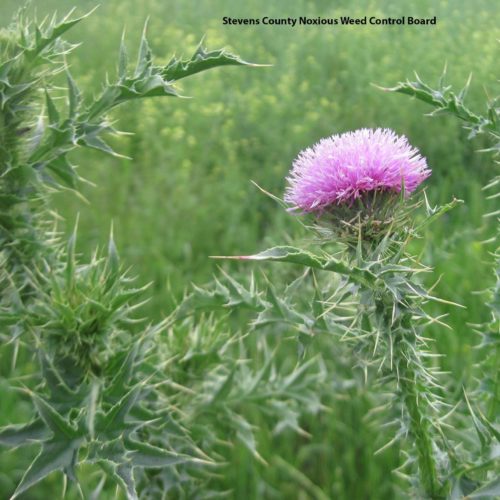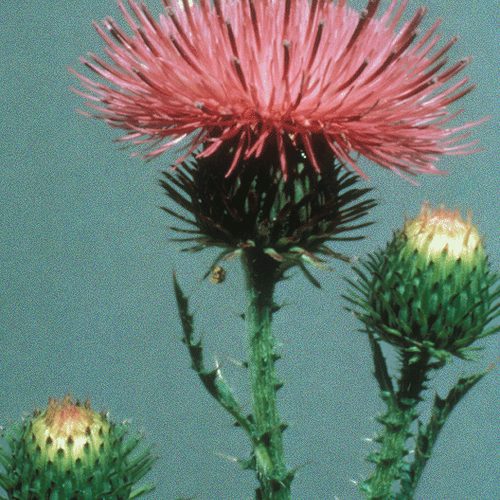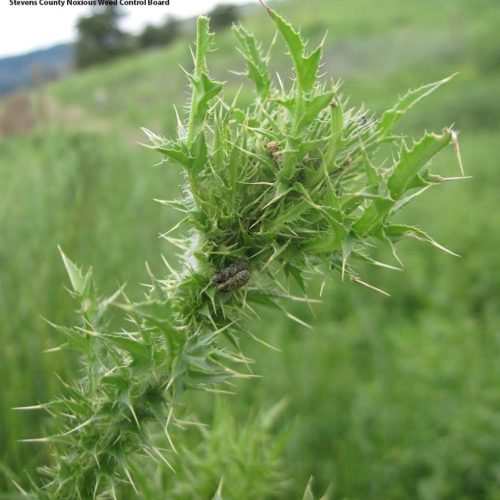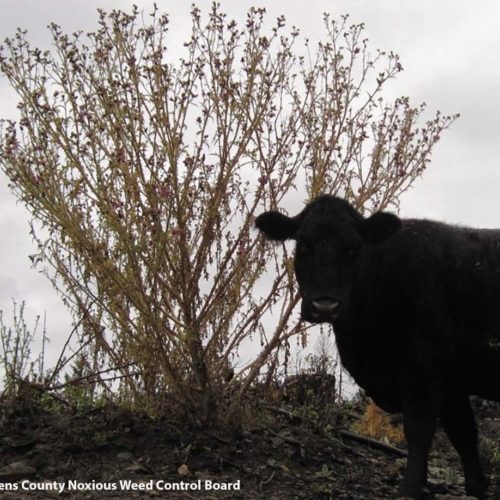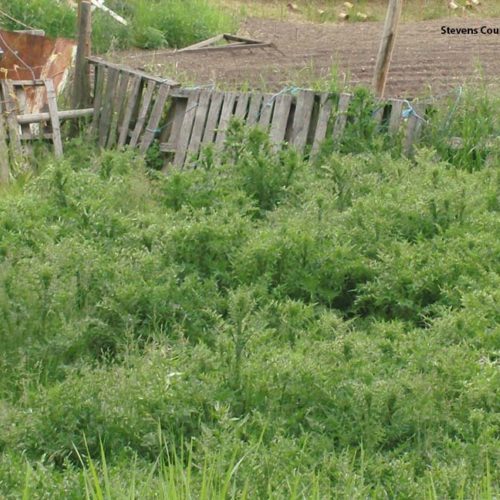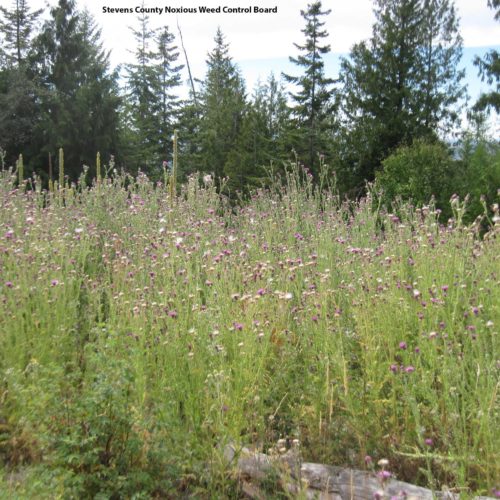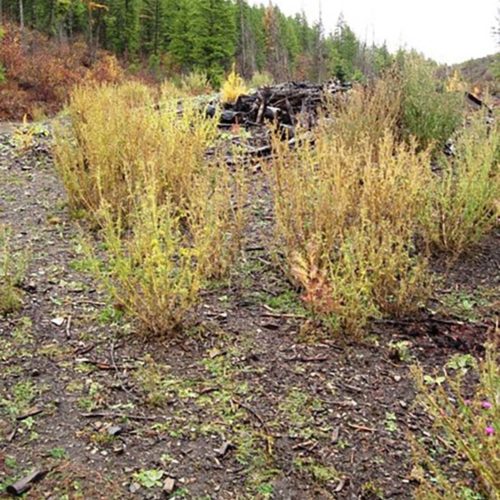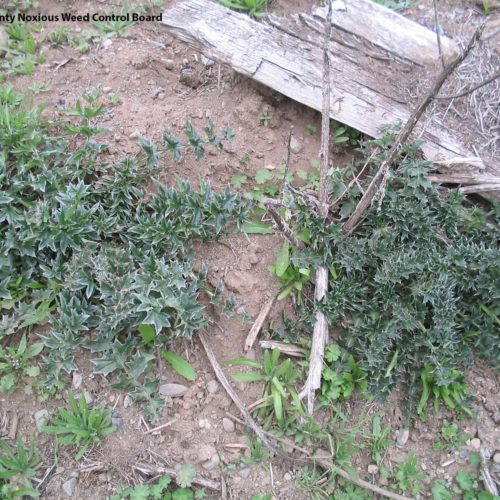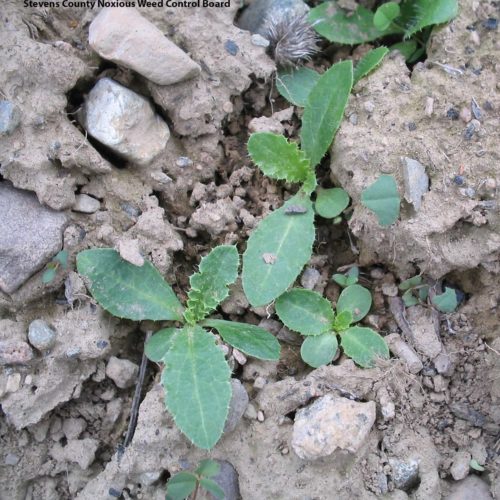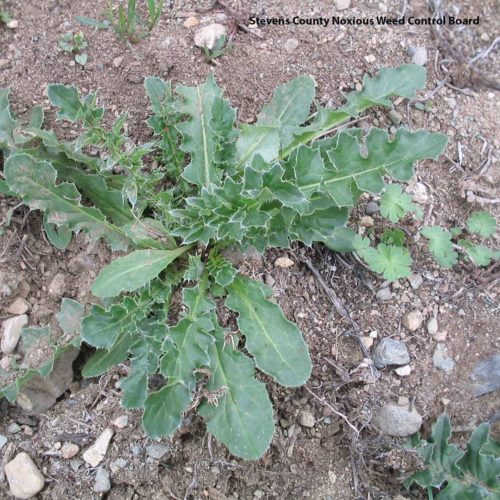Plumeless Thistle
Carduus acanthoides
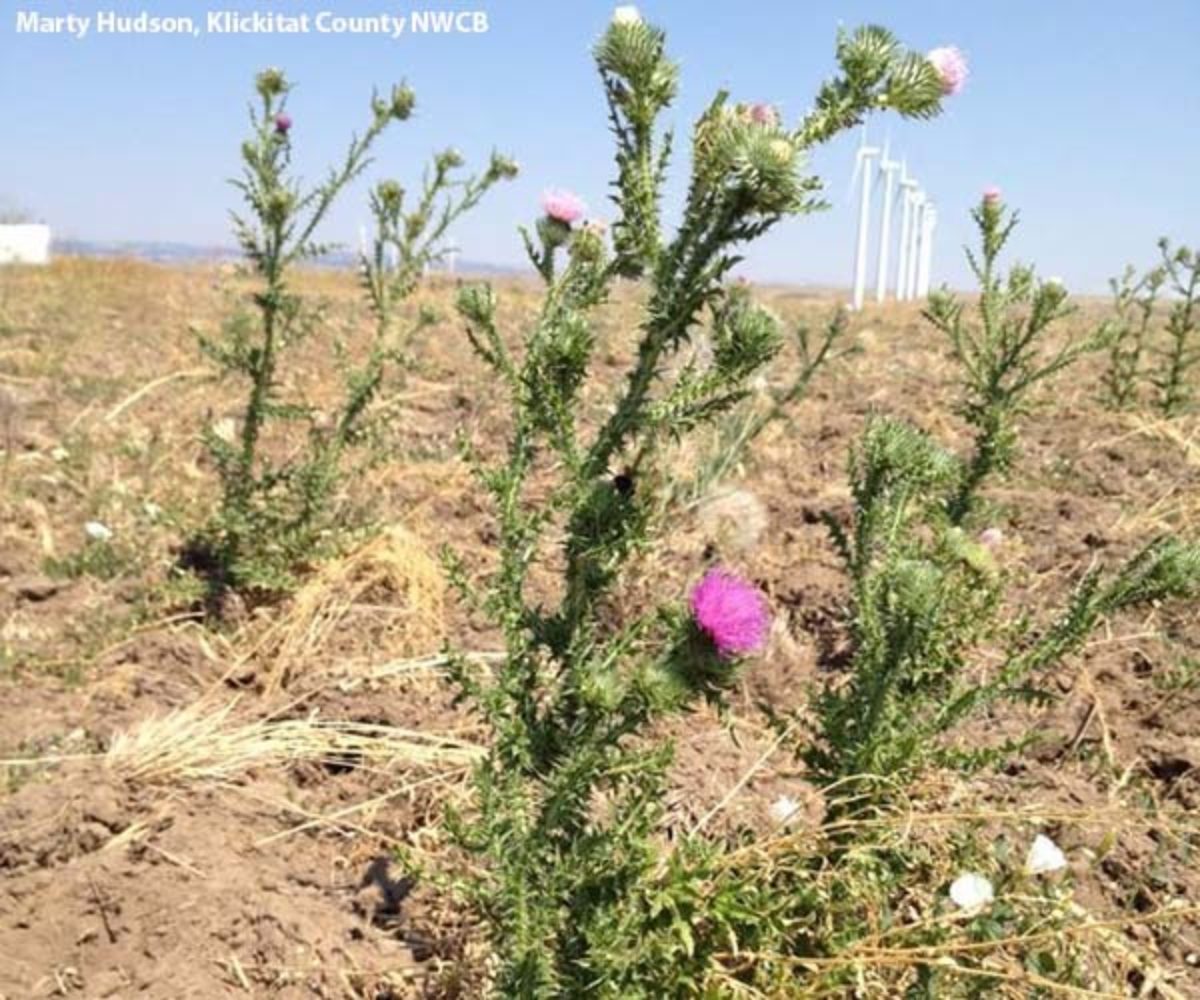
Family: Asteraceae
Other Common Names: spiny plumeless thistle
Weed class: B
Year Listed: 1988
Native to: Europe and temperate Asia
Is this Weed Toxic?:
not known to be
Legal listings:
This plant is also on the Washington State quarantine list. It is prohibited to transport, buy, sell, offer for sale, or distribute plants or plant parts of quarantined species into or within the state of Washington or to sell, offer for sale, or distribute seed packets of seed, flower seed blends, or wildflower mixes of quarantined species into or within the state of Washington. Please see WAC 16-752 for more information on the quarantine list. For questions about the quarantine list, contact the Washington State Department of Agriculture's Plant Services Program at (360) 902-1874 or email PlantServices@agr.wa.gov.
Why Is It a Noxious Weed?
Plumeless thistle invades pastures, meadows, and fields crowding out desirable forage plants. Livestock will not graze in areas heavily infested with plumeless thistle.
How would I identify it?
General Description
It is an upright, spiny, biennial growing up to 8 feet tall.
Flower Description
Flowers are solitary or in clusters of 2 to 3 flower heads with reddish purple flowers.
Leaf description
Dark green leaves are deeply lobed to compound with hair on the undersides and spines along the leaf margins.
Stem description
Stems are tough and have spiny wings.
Fruit Seed Description
Seeds (achenes) are smooth and hairless.
Where does it grow?
Plumeless thistle grows in pastures, stream valleys, fields and roadsides. Please click here to see a county level distribution map of plumeless thistle in Washington.
How Does it Reproduce?
Plumeless thistle reproduces by seed.
How Do I Control It?
General Control Strategy
Establishing a dense, well-maintained pasture is effective in preventing a plumeless thistle infestation.
Mechanical Control
Plumeless thistle can be dug or grubbed out.
Herbicide Control
Please refer to the PNW Weed Management Handbook, or contact your county noxious weed coordinator.
For More Information
See our Written Findings for more information about plumeless thistle (Carduus acanthoides).
Stevens County NWCB Fact Sheet on plumeless thistle



